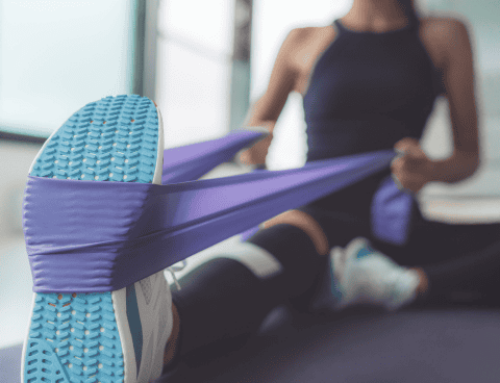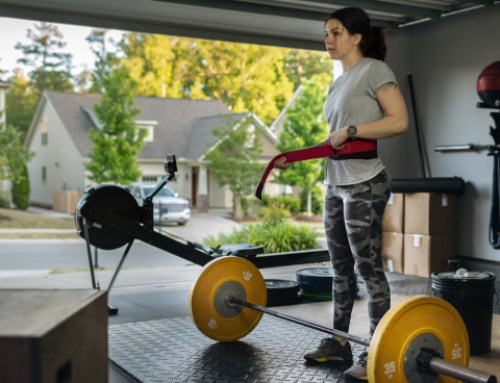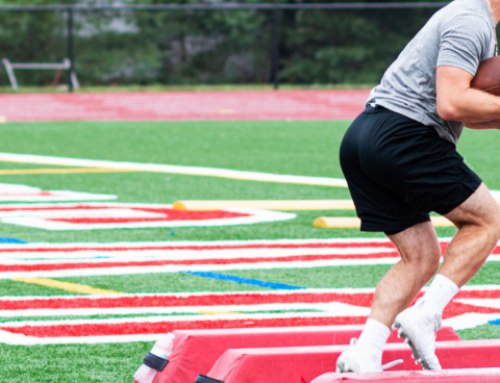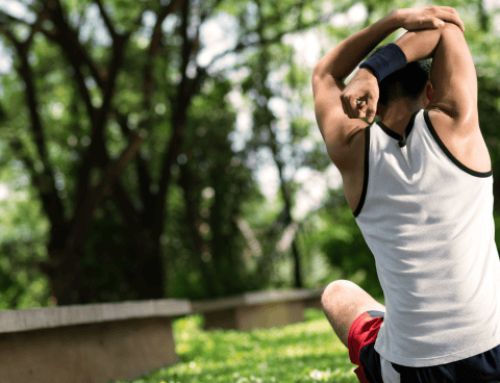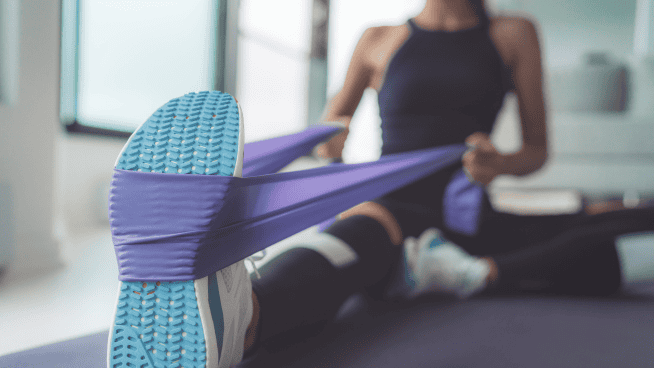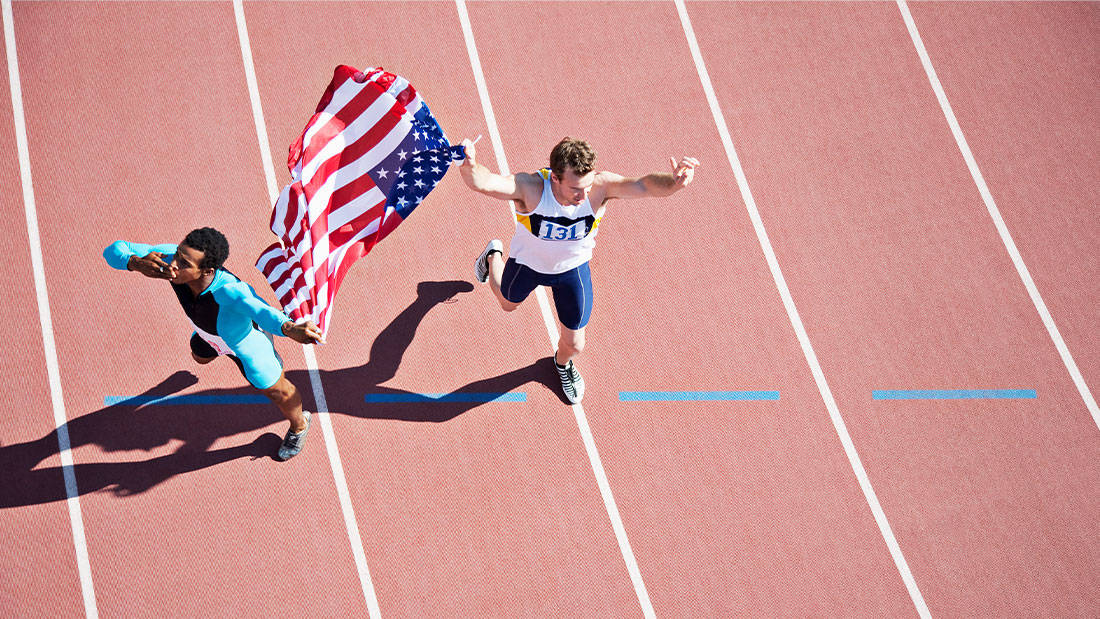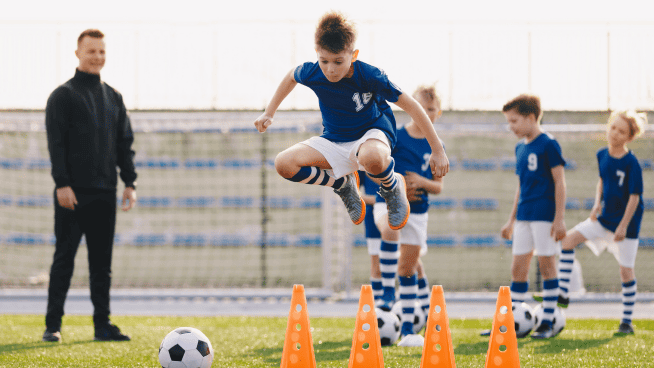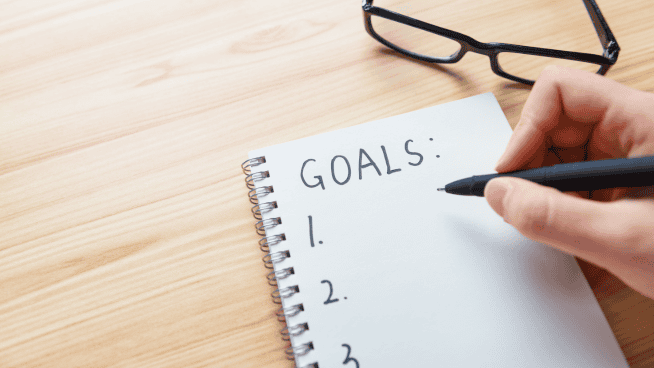The Importance of a Strong Core for Basketball Players
Basketball, like many sports, is an athletic activity that is based on various aspects of athletic ability and physical well-being. From transitioning down the court to beating a man off the dribble to dunking the ball to stopping the man in front of you, it is important to have a certain level of explosive ability, and the key to that explosiveness is found in having a strong core.
By having a strong core, players will notice an increase in performance, a reduction in injury, and longevity in their playing time.
What Is Your Core?
Before jumping into how having a strong core can help make you a better basketball player, one important thing that needs to be cleared up is what exactly makes up your core. Most people think that the core area is just your abdominals, however, they would only be checking off one of many boxes. The main muscles that make up your core include:
Rectus Abdominis (your abs)
Transverse Abdominis (deep abdominal muscles that wrap horizontally around your midsection)
Erector Spinae (muscles next to your spine that help keep you erect and with proper posture)
Internal and External Obliques
Diaphragm (the breathing muscle found on the top of your core)
Pelvic Floor Muscles
These muscles (and others) are broken up into two groups, the movers and the stabilizers, and essentially help your body do exactly that, move and stabilize.
Increased Power and Explosiveness
Whether you want to beat a defender to the hoop off a dribble, box him out for a rebound, or launch a jumper from downtown, core strength is vital for generating both power and explosiveness. As the core muscles transfer force from the lower body to the upper body, players will notice an improvement in areas such as shooting and rebounding in addition to their movement on the floor.
Enhanced Agility and Quickness
By having a stable and strong core, players will notice they are more agile and in their ability to change directions quicker. Improved fundamental movements such as pivoting, cutting, changing directions and quicker reloading for multiple jumps will make them more effective on both ends of the court.
Improved Endurance
With a strong core, basketball players (and all athletes) are more likely to maintain proper form and technique with their in-game movements throughout the duration of the practice or game. Rather than getting fatigued earlier, players will be able to perform at a high level for a longer duration of time.
Improved Gameplay and Skills
In addition to a strong upper body, a strong core helps with stability and control when it comes to basic gameplay skills such as passing, shooting, layups, dribbling, rebounding, and defending. By maintaining a strong base, players will notice an increase in their shooting and passing consistency, precision, and distance.
Stability and Balance
In a game that involves constant changes in pace, direction, and roles, as well as jumping and landing off of either one or both feet and often while absorbing some sort of contact, stability, and balance are two key elements for a basketball player. By having stability and balance during these movements, players will likely be more effective and successful.
Injury Prevention
Players with a weak core will often find noticeable imbalances in their body. This can lead to various lover body injuries such as strains and sprains to the ankles, as well as sore knees, achy lower back, hips, and pelvis area.
Quicker Recovery and Rehabilitation
There is nothing worse than sitting on the sidelines with a nagging injury that just will not heal properly. With a strong core, players are likely to bounce back quicker from injuries that depend on having a strong sense of balance and stability, such as a sprained ankle, lower back tightness, or a knee injury.
Improved Posture
Having proper posture can not only help a basketball player physically but also mentally and emotionally. From a physical standpoint, proper posture can help improve agility, movement, and shooting accuracy. Mentally, having proper posture can help you focus on the action on the court while sitting upright on the bench, rather than slumped over. This will also show your coach that you are focused and paying attention, rather than looking like you are exhausted and don’t care. From an emotional standpoint, having your shoulders hunched over and your head hanging is a sign of defeat, something you never want your opponents to see.
How To Develop A Stronger Core
Incorporating exercises that focus on the abdominals, lower back, hips, and obliques into your weekly workout program will help to develop a stronger, more stable core. However, it is also important to implement exercises that improve flexibility to complement your core-strengthening workouts.
The following ten exercises can be done anywhere at any time without any equipment, either for time or reps.
Plank variations
Dead Bugs
Russian Twists
Bicycle Crunches
Leg Raises
Superman
Bird Dogs
Flutter Kicks
Wood Choppers
Windshield Wipers
RECOMMENDED FOR YOU
MOST POPULAR
The Importance of a Strong Core for Basketball Players
Basketball, like many sports, is an athletic activity that is based on various aspects of athletic ability and physical well-being. From transitioning down the court to beating a man off the dribble to dunking the ball to stopping the man in front of you, it is important to have a certain level of explosive ability, and the key to that explosiveness is found in having a strong core.
By having a strong core, players will notice an increase in performance, a reduction in injury, and longevity in their playing time.
What Is Your Core?
Before jumping into how having a strong core can help make you a better basketball player, one important thing that needs to be cleared up is what exactly makes up your core. Most people think that the core area is just your abdominals, however, they would only be checking off one of many boxes. The main muscles that make up your core include:
Rectus Abdominis (your abs)
Transverse Abdominis (deep abdominal muscles that wrap horizontally around your midsection)
Erector Spinae (muscles next to your spine that help keep you erect and with proper posture)
Internal and External Obliques
Diaphragm (the breathing muscle found on the top of your core)
Pelvic Floor Muscles
These muscles (and others) are broken up into two groups, the movers and the stabilizers, and essentially help your body do exactly that, move and stabilize.
Increased Power and Explosiveness
Whether you want to beat a defender to the hoop off a dribble, box him out for a rebound, or launch a jumper from downtown, core strength is vital for generating both power and explosiveness. As the core muscles transfer force from the lower body to the upper body, players will notice an improvement in areas such as shooting and rebounding in addition to their movement on the floor.
Enhanced Agility and Quickness
By having a stable and strong core, players will notice they are more agile and in their ability to change directions quicker. Improved fundamental movements such as pivoting, cutting, changing directions and quicker reloading for multiple jumps will make them more effective on both ends of the court.
Improved Endurance
With a strong core, basketball players (and all athletes) are more likely to maintain proper form and technique with their in-game movements throughout the duration of the practice or game. Rather than getting fatigued earlier, players will be able to perform at a high level for a longer duration of time.
Improved Gameplay and Skills
In addition to a strong upper body, a strong core helps with stability and control when it comes to basic gameplay skills such as passing, shooting, layups, dribbling, rebounding, and defending. By maintaining a strong base, players will notice an increase in their shooting and passing consistency, precision, and distance.
Stability and Balance
In a game that involves constant changes in pace, direction, and roles, as well as jumping and landing off of either one or both feet and often while absorbing some sort of contact, stability, and balance are two key elements for a basketball player. By having stability and balance during these movements, players will likely be more effective and successful.
Injury Prevention
Players with a weak core will often find noticeable imbalances in their body. This can lead to various lover body injuries such as strains and sprains to the ankles, as well as sore knees, achy lower back, hips, and pelvis area.
Quicker Recovery and Rehabilitation
There is nothing worse than sitting on the sidelines with a nagging injury that just will not heal properly. With a strong core, players are likely to bounce back quicker from injuries that depend on having a strong sense of balance and stability, such as a sprained ankle, lower back tightness, or a knee injury.
Improved Posture
Having proper posture can not only help a basketball player physically but also mentally and emotionally. From a physical standpoint, proper posture can help improve agility, movement, and shooting accuracy. Mentally, having proper posture can help you focus on the action on the court while sitting upright on the bench, rather than slumped over. This will also show your coach that you are focused and paying attention, rather than looking like you are exhausted and don’t care. From an emotional standpoint, having your shoulders hunched over and your head hanging is a sign of defeat, something you never want your opponents to see.
How To Develop A Stronger Core
Incorporating exercises that focus on the abdominals, lower back, hips, and obliques into your weekly workout program will help to develop a stronger, more stable core. However, it is also important to implement exercises that improve flexibility to complement your core-strengthening workouts.
The following ten exercises can be done anywhere at any time without any equipment, either for time or reps.
Plank variations
Dead Bugs
Russian Twists
Bicycle Crunches
Leg Raises
Superman
Bird Dogs
Flutter Kicks
Wood Choppers
Windshield Wipers

